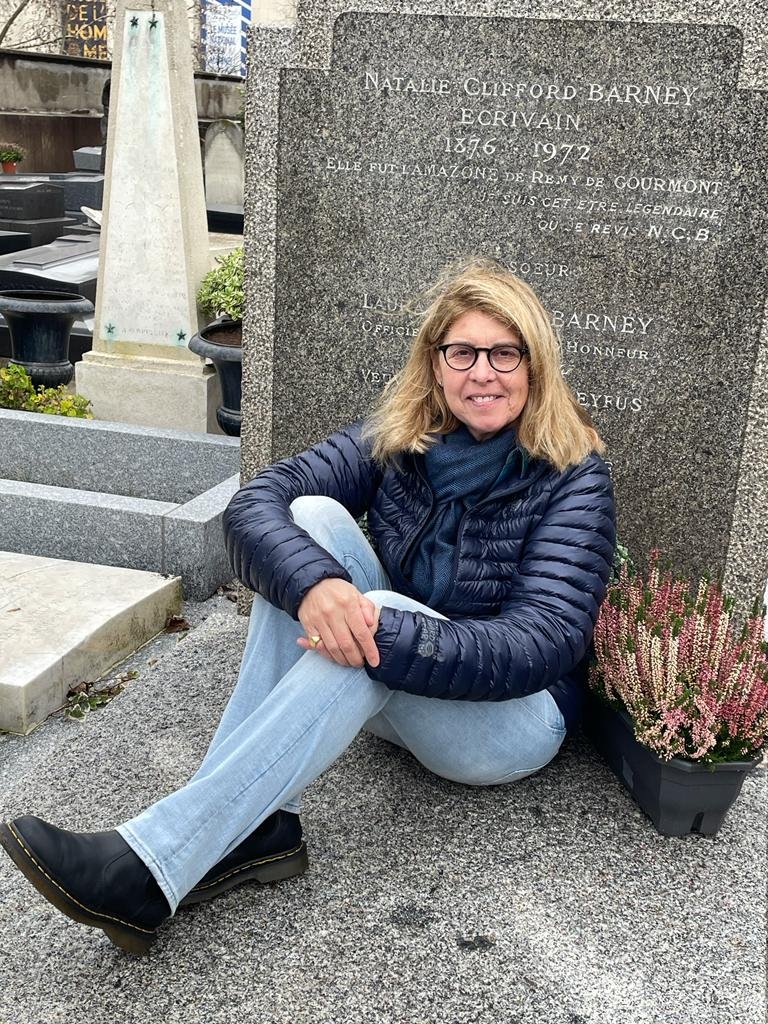
Transcribing the
unpublished work of
Natalie Clifford Barney
(1876-1972)

“Frame a problem to attract a wide array of solvers.”
“We miss out on wisdom if we’re too narrow,” writes David Epstein in Range.
This year, I’m taking Epstein’s wisdom to heart. I’ve enrolled in graduate school to pursue an MFA. I’ve also joined a research unit in Paris, at the Sorbonne Nouvelle, to pursue archival research at the Bibliothèque Littéraire Jacques Doucet in the Fonds Natalie Barney.
Natalie Barney was the first cosmopolitan to live an openly lesbian life and to identify herself as lesbian in print. The transgressive plays she produced in her own garden at Neuilly became a flourishing of the arts that we now call Sapho 1900. During a scandalous love affair with Liane de Pougy, Barney made a major contribution to Pougy’s Idylle Sapphique, the first lesbian novel in French. Barney established the Académie des Femmes and lobbied successfully for the first woman, Marguerite Yourcenar, to be elected to the Académie Française. Barney’s Friday salons at 20 rue Jacob were a fixture of Left Bank Bohemia, a Who’s Who of queer Paris between the wars. Barney herself was polyamorous, with a special talent for crafting and sustaining lifelong friendships, and the community of artists, writers and musicians she inspired and nourished through the decades produced great works of literature, such as Ladies Almanack by Djuna Barnes.
When Natalie Barney died at 96, having lived most of her adult life in France, she had earned an important place in LGBTQ+ history. But her work is still too little known.
In 2020, with the support of friends and family of NCB, I directed, narrated and produced the audiobook of an entertaining novel about Natalie Barney by Francesco Rapazzini. The novel, written in French, has still not been published in English, but you can listen to it in English on Audible, Apple or Google Play. I made the translation with Sally Hamilton and pledged my artist royalty from “A Night at the Amazon’s” to the Stonewall National Museum and Archives to support programs that benefit LGBTQ+ people worldwide.
Now, fifty years after Barney’s death in Paris, I’ll transcribe Barney’s plays in French and English so the texts can be established for publication and production.
This year, American legislators are passing “Don’t Say Gay” laws to bury the history that people like Natalie Barney dedicated their lives to make. What a privilege to be working as an archival researcher in France, where I have been so warmly welcomed on my quest to find new audiences for history that has been largely hidden from view for half a century. I look forward to strengthening the same Franco-American ties that Natalie Barney first made herself as a boarding school student at Les Ruches, outside Paris near Barbizon and the forest of Fontainebleau, back in the Gilded Age.
It’s all a bit daunting. But I’m strengthened by another nugget of wisdom from David Epstein’s book Range:
“Breadth of training predicts breadth of transfer. Transfer is your ability to take knowledge and skills and apply them to a problem or situation you have not seen before.”
So, wish me luck. I’ll let you know how it all works out.
Suzanne Stroh is CEO and creative director of the international arts & entertainment group she founded, Legion Group Arts, as well as an authority on family enterprise. Co-author of the UBS Family Office Compass, she led concept design and research for Glenfiddich’s Family Spirit. Suzanne is a seasoned chief of staff who delivers insights, solutions and creative services to enterprising leaders.


